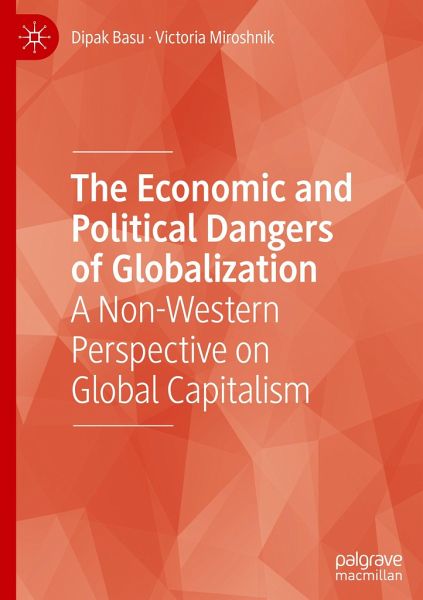
The Economic and Political Dangers of Globalization
A Non-Western Perspective on Global Capitalism
Versandkostenfrei!
Versandfertig in 6-10 Tagen
83,99 €
inkl. MwSt.
Weitere Ausgaben:

PAYBACK Punkte
42 °P sammeln!
This book explores the economic and political impact of US aggression and the rise of China. Charting the impact of globalization from the Greek and Roman Empires onwards, the contemporary challenges posed by globalization is analysed in relation to both multinational companies and Wall Street banks. The influence of the World Trade Organization is investigated, with a particular focus on how it has created a Washington consensus throughout the world.This book aims to provide a non-Western perspective on global capitalism and the dangers it creates. It will be relevant to students and research...
This book explores the economic and political impact of US aggression and the rise of China. Charting the impact of globalization from the Greek and Roman Empires onwards, the contemporary challenges posed by globalization is analysed in relation to both multinational companies and Wall Street banks. The influence of the World Trade Organization is investigated, with a particular focus on how it has created a Washington consensus throughout the world.
This book aims to provide a non-Western perspective on global capitalism and the dangers it creates. It will be relevant to students and researchers interested in political economy, economic history, and development economics.
This book aims to provide a non-Western perspective on global capitalism and the dangers it creates. It will be relevant to students and researchers interested in political economy, economic history, and development economics.














